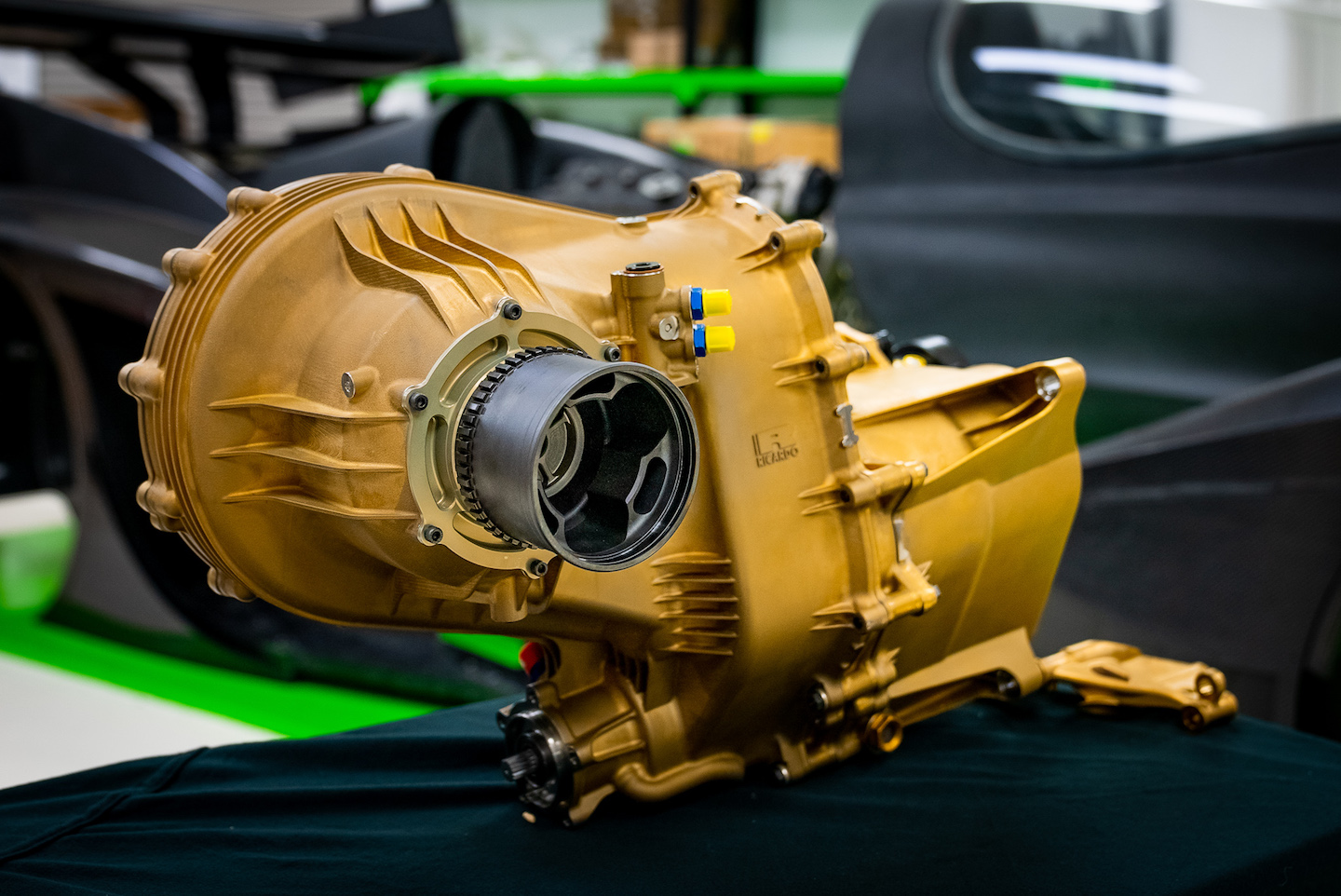First production part of its kind to complement high-performance exotic vehicle - offers unparalleled quality, durability and luxury
3D Systems' Application Innovation Group is instrumental in the development of novel parts with the DMP Factory 500 3D printer.
Rodin Cars, the New Zealand-based manufacturer of the ultimate race car, has selected 3D Systems' additive metal manufacturing solutions. These will be used to produce parts for the soon-to-be-released Rodin FZero hypercar. Rodin Cars designs and builds completely bespoke, single-seat, high-performance vehicles that are intended to be faster than contemporary Formula One cars. One of the hundreds of metal parts Rodin Cars additively manufactures for the Rodin FZero is an eight-speed sequential gearbox with a hydraulically controlled differential. This fully customised component can only be made with additive manufacturing. It was made possible by Rodin Cars' design expertise combined with 3D Systems' extensive application knowledge and leadership in additive manufacturing.
A transmission made using conventional manufacturing methods would be cast from magnesium or milled from billet material. The resulting part would not only be slow to manufacture, but heavier and would not stand up to the demands of the track. Rodin Cars wanted to transform this design into a true innovation - the ultimate 3D-printed titanium component that would be compact, lightweight, strong and durable.
Rodin Cars launched its first high-performance race car in 2019, the Rodin FZed. This featured a gearbox developed by Ricardo, a UK-based engineering company. For the new Rodin FZero, Rodin Cars planned an all-new gearbox with specific ratios and a titanium-built differential to enhance the exotic reputation of this new high-performance vehicle. The 18-month design process - a collaboration between Rodin Cars for the housings and Ricardo for the internals - resulted in a new type of gearbox with a hydraulically controlled differential. This can only be manufactured additively, as the necessary internal galleries and thin-walled bearing and mounting structures can be produced directly using 3D printing. Rodin Cars engineers worked with members of 3D Systems' Application Innovation Group (AIG) in Littleton, Colorado, and Leuven, Belgium, to bring this particular design to life.
3D Systems' AIG application engineers not only have deep expertise in additive manufacturing, but also in high-value applications in a variety of industries - including motorsports. The teams' technical expertise, combined with 3D Systems' industry-leading direct metal printing (DMP) technology, facilitated the production of the new gearbox, which has two-millimetre-thick walls and a total weight of 68 kilograms. Application engineers in Littleton optimised the details of the gear printing for additive manufacturing on the large scale possible on the DMP Factory 500 and produced the first part on the DMP Factory 500 in Leuven. This industry-leading solution - with a vacuum chamber that ensures lowest oxygen content - enables the production of seamless large parts up to 500 mm x 500 mm x 500 mm. The result is excellent surface quality of the 3D printed metal parts with outstanding material properties. 3D Systems' AIG has successfully completed the technology transfer to Rodin Cars for full production. Rodin Cars recently installed a DMP Factory 500 on-site at its newly expanded facility, where it will produce the transmission and hundreds of other custom parts for the Rodin FZero.
"3D printing allows us to design and manufacture components that are out of reach with traditional manufacturing methods," says David Dicker, founder of Rodin Cars. "With the transmission for the Rodin FZero, we had specific criteria we wanted to meet in terms of weight and durability. Due to the size and quality required for such a large part, printing could only be done on 3D Systems' DMP Factory 500 machine. We found no other additive manufacturing solution provider that could offer a similar solution to our requirements - print quality and volume capacity, testing facilities in Leuven and ongoing technological support."
In addition to DMP technology, Rodin Cars is using 3D Systems' selective laser sintering (SLS) and stereolithography (SLA) technology to produce carbon fibre mould production parts and tooling, respectively.
"Additive manufacturing enables automotive companies to bypass technological limitations and thereby differentiate themselves from the competition," said Kevin Baughey, segment manager, Transportation & Motorsports, 3D Systems. "As a builder of high-performance vehicles, Rodin Cars delivers vehicles to its customers that are second to none. This is a striking example of how additive manufacturing not only enables the production of parts that could not be made using conventional methods. It also shows how this technology can help produce a lighter, stronger and more beautiful vehicle."
www.3dsystems.com

 Deutsch (Germany)
Deutsch (Germany)  Polski (PL)
Polski (PL) 










